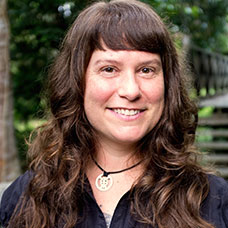
Evolutionary Biologist and Entomologist
In Search of the Evolution of Ants With Biologist Corrie Moreau at The Field Museum
Growing up in New Orleans, Corrie Moreau, Ph.D., prominent evolutionary biologist and entomologist, remembers how she loved insects — especially ants — and keeping these creatures in jars in her room and maintaining ant farms on her bookshelves. “I also really liked how evolution provided the framework to understand the diversity of life we find on the planet currently and through deep time,” Corrie said in an interview with the Chicago news website, Chicagoist. “I knew when I went away to college that I wanted to find a way to unite these two passions and have been lucky enough to continue to do both throughout my career.”
This dream has become the cornerstone of her work as Associate Curator/Professor at Field Museum of Natural History in Chicago, one of the nation´s premiere museums of its kind, where she and her team study the evolution and diversification of ants. “I want to understand why are there so many species of ants (there are over 15,000 species with scientific names and another 15,000-30,000 waiting to be discovered),” she explained to Chicagoist. Corrie is also interested in studying where these ant species are found (such as why are there more species in the tropical regions of the world), how long have they been on the planet (the oldest known ant fossil is 100 million years old!) and how do the bacteria in their guts help them process food and shift diets.
“Although I study ants and the bacteria associated with their digestive tracts using DNA and genomics, I am ultimately interested in understanding how the information we gain from studying ants can help us understand broader questions in biology,” she adds.
The Field Museum, with its more than 26 million specimens and artifacts (with less than 1 percent on display in the public exhibitions) provides a viable research venue for her and other investigators in various spheres of biological science. “Most of these specimens are held behind the scenes in the scientific research areas for scientists here at the Field Museum and from around the world to use to conduct original research,” she says. “The insects alone make up more than 50 percent of the 26 million specimens, so as a curator of our insect collections, I am responsible for both overseeing staff to care for these collections, participating in field work to continue to add to these collections, and doing research using the collections.”
Corrie, who is also a faculty member and lecturer at the University of Chicago in the Committee on Evolutionary Biology, also believes strongly in offering exciting, hands-on scientific education and outreach to students and the general public through her expertise and the ample resources of the Field Museum. “For me, these activities range from teaching university courses to directly supervising students at all educational levels, interacting with other educational programs, working with local school children, and creating and being involved in online and digital learning resources for all ages.”
She also recently founded the Field Museum Women in Science group which includes paid internship opportunities for young women and girls. Dr. Moreau earned her Ph.D. in Evolutionary Biology from Harvard University and was a Miller Fellow at the University of California, Berkeley. Before this, she completed her undergraduate and Master’s degrees in Biology at San Francisco State University.
Her numerous professional awards and honors include being elected a Miller Fellow of the Miller Institute at the University of California, Berkeley (2007-2008), and as a Kavli Fellow of the National Academy of Sciences (2016); receiving two “Excellence and Distinction in Teaching Awards” from Harvard University’s Derek Bok Center for Teaching and Learning (2004 and 2006); being included in “15 Brilliant Women Bridging the Gender Gap in Science” in 2015; and being listed as among the “10 Women Scientists You Should Follow on Twitter” in 2014.


































